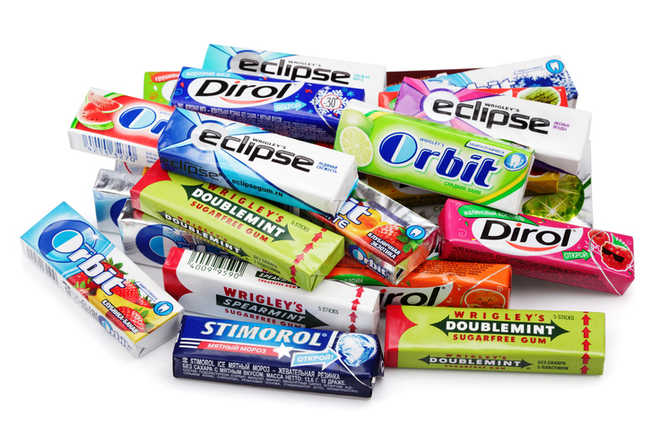
Photo for representational purpose only. iStock
Washington, February 20
A common food additive found in chewing gums, chocolates and breads may significantly reduce the ability of small intestine cells to absorb nutrients and block pathogens, a new study has warned.
"Titanium oxide is a common food additive and people have been eating a lot of it for a long time, but we were interested in some of the subtle effects, and we think people should know about them," said Gretchen Mahler, a professor at the Binghamton University in the US.
"There has been previous work on how titanium oxide nanoparticles affects microvilli, but we are looking at much lower concentrations," Mahler said.
"We also extended previous work to show that these nanoparticles alter intestinal function," she said.
Titanium dioxide is generally recognised as safe by the US Food and Drug Administration and ingestion is nearly unavoidable.
The compound is an inert and insoluble material that is commonly used for white pigmentation in paints, paper and plastics.
It is also an active ingredient in mineral-based sunscreens for pigmentation to block ultraviolet light.
However, it can enter the digestive system through toothpastes, as titanium dioxide is used to create abrasion needed for cleaning.
The oxide is also used in some chocolate to give it a smooth texture; in donuts to provide colour; and in skimmed milks for a brighter, more opaque appearance which makes the milk more palatable.
A previous study had tested 89 common food products including gum, Twinkies, and mayonnaise and found that they all contained titanium dioxide.
About five per cent of products in that study contained titanium dioxide as nanoparticles.
"To avoid foods rich in titanium oxide nanoparticles you should avoid processed foods, and especially candy. That is where you see a lot of nanoparticles," Mahler said.
Researchers exposed a small intestinal cell culture model to the physiological equivalent of a meal's worth of titanium oxide nanoparticles - 30 nanometres across - over four hours (acute exposure), or three meal's worth over five days (chronic exposure).
Acute exposures did not have much effect, but chronic exposure diminished the absorptive projections on the surface of intestinal cells called microvilli.
With fewer microvilli, the intestinal barrier was weakened, metabolism slowed and some nutrients - iron, zinc, and fatty acids, specifically - were more difficult to absorb.
Enzyme functions were negatively affected, while inflammation signals increased.
The study was published in the journal NanoImpact. — PTI



























